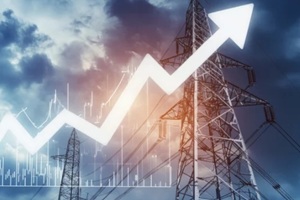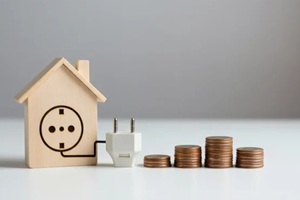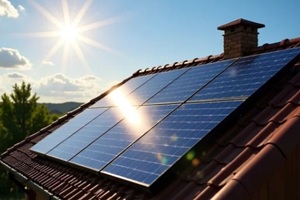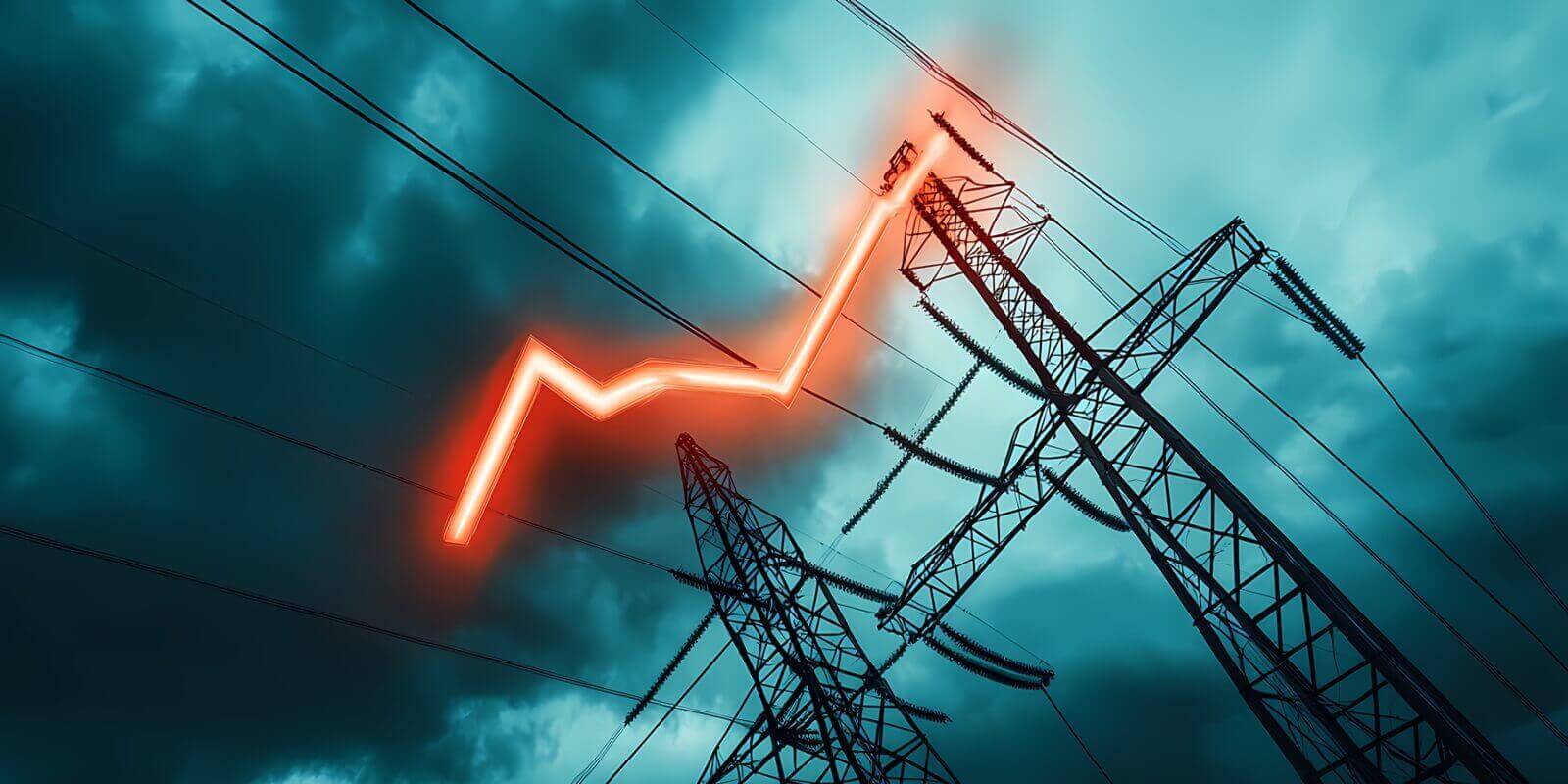In recent months, the average monthly electricity bill in Maryland has been increasing. It now totals around $185 per month, or $2,220 per year. As energy needs, inflation, infrastructure, and sustainability standards change, these numbers are expected to continue growing. Rising energy rates can impact financial security and stability across all income brackets, disproportionately affecting middle and low-income homeowners.
This article reviews the current rise in energy rates in Maryland to help homeowners prepare for the upcoming changes. By utilizing solar installations, adopting better energy usage habits, and gaining a deeper knowledge of electricity bill calculations, homeowners can maximize their energy budgets even in a changing market.
Why are Energy Rates Increasing?

While some causes of rising energy rates are specific to Maryland energy providers, others impact homeowners nationwide. Rising inflation, infrastructure costs, and potential import tariffs can lead to increased energy bills.
In Maryland, major providers such as BGE and Pepco are implementing increased rates to fund new infrastructure and comply with Maryland’s legislative standards for sustainable energy production. Delivery charges in some cases have increased 33% since 2020, and homeowners can continue to expect similar rate increases moving forward.
In other cases, increased energy rates are due to peak time usage rather than economic changes. Using power when the grid is strained, such as during the summer months or at midday, can impact energy bills. Providers often compensate for increased infrastructure costs with additional charges. It is up to each homeowner to recognize when their energy usage habits may be contributing to a higher monthly energy bill.
How do Rising Energy Costs impact Homeowners?
Rising energy bills impact homeowners in financial, emotional, and practical ways. Higher bills can change purchasing and energy usage habits, strain relationships, or even contribute to resource inequality. Consider these potential impacts:
- Increased Financial Stress: Many homeowners become financially stressed over rising energy bills. This can be especially true during the warm summer months when they must decide between running the AC or depleting their household savings.
- Lack of Necessities: Financial stress can impact a home’s access to essentials, such as cleaning products, food, or medicine.
- Increasing Debts: With less disposable income, many homeowners take out loans or default on existing ones, including student loans, mortgage payments, and credit card bills.
- Potential Health Risks: With less money to heat and cool the home, some homeowners stand the risk of potential health problems, such as cardiac or respiratory issues.
While not an exhaustive list, these factors can have a cascading effect on a household’s income and stress level. Since rising energy costs are here to stay, modern homeowners must mitigate these risks with the proper preparation.
Strategies to Help Homeowners Prepare for Rising Electricity Bills
Rising energy costs affect homeowners in various ways, from broad economic impacts to personal and emotional consequences. Regardless of how rising energy bills affect the home, these strategies can help homeowners prepare their finances and homes for current and future price hikes:

- Improve Energy Efficiency: Homeowners can address energy loss by upgrading insulation, switching to energy-efficient windows, servicing their HVAC system, switching to LED lighting, or buying energy-efficient appliances.
- Invest in Renewable Energy: Renewable energy investments, such as solar panel installations, reduce the home’s dependence on the power grid.
- Change Power Usage Habits: Reserving energy-intensive tasks for non-peak usage times can reduce the monthly electricity bill.
- Compare Energy Bills: Extra charges on the energy bill could be the result of the household’s usage habits, local legislative changes, or a metering issue. Comparing monthly electricity bills can help homeowners identify potential causes of price increases.
- Compare Energy Plans: Different providers may scale energy costs differently, including charges for peak usage and planned utility hikes due to infrastructure investments. Homeowners can compare different providers to find a better plan.
- Take Advantage of State Benefits: Maryland is one of many states that offers homeowners financial incentives to switch to solar energy. Visit the Maryland Energy Administration site to learn more about the current Solar Access Program.
- Invest in Smart Technology: Smart technology, such as auto-timers on thermostats, can help homeowners save on their energy bills even while away from home.
Partner With Professional Solar Installers to Prepare for Rising Electricity Costs

With many major utility providers increasing electricity costs, homeowners struggle to manage their finances, pay their mortgages, and afford necessities. While rising electricity costs cannot always be prevented, strategic preparations can help homeowners mitigate the associated financial risk and withstand the challenge.
At Energy Select, our experienced team helps homeowners future-proof their energy consumption habits with state-of-the-art solar panel installations.
Investing in sustainable energy gives homeowners access to renewable power, state benefits, and other strategies that can help mitigate the impact of rising energy costs. Contact our team today to learn how renewable energy solutions can mitigate the impact of your rising monthly electricity bill and future-proof your finances.


